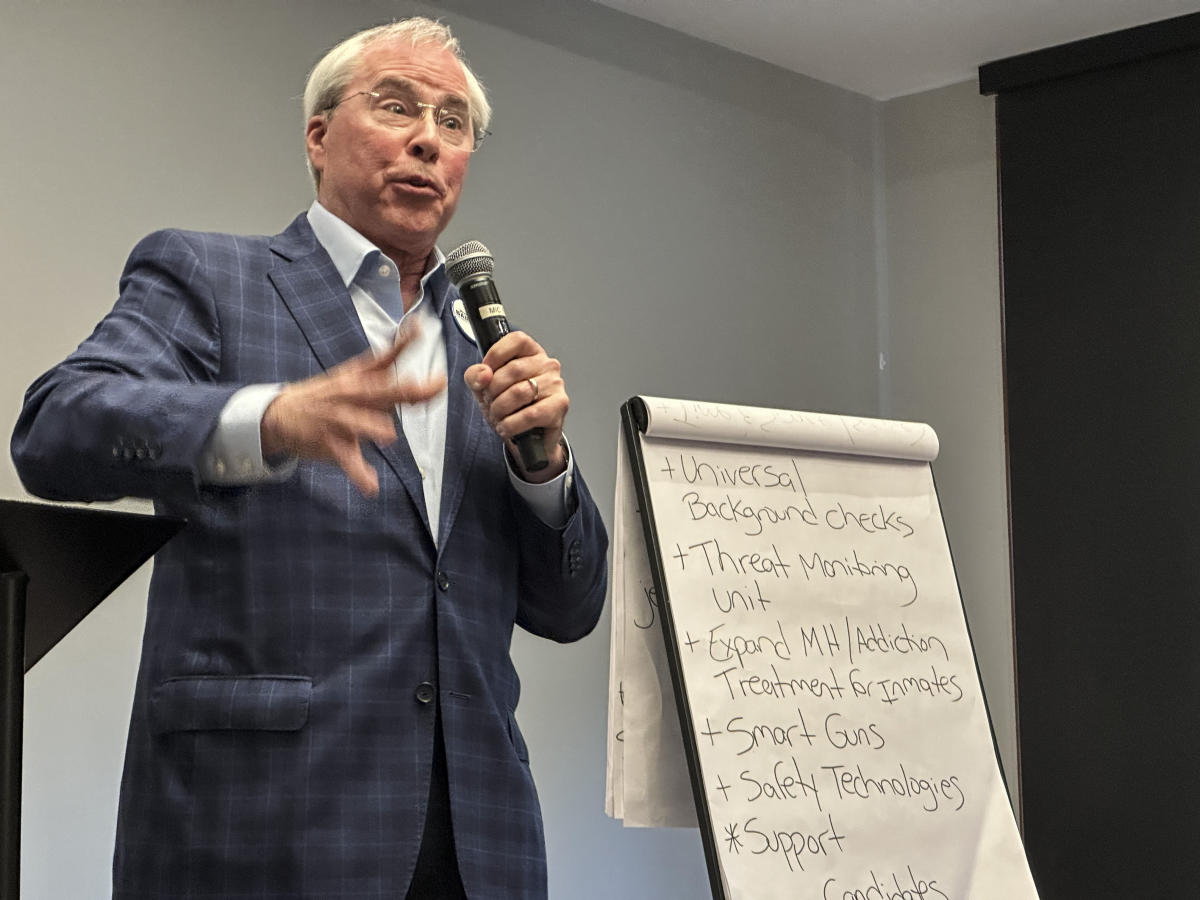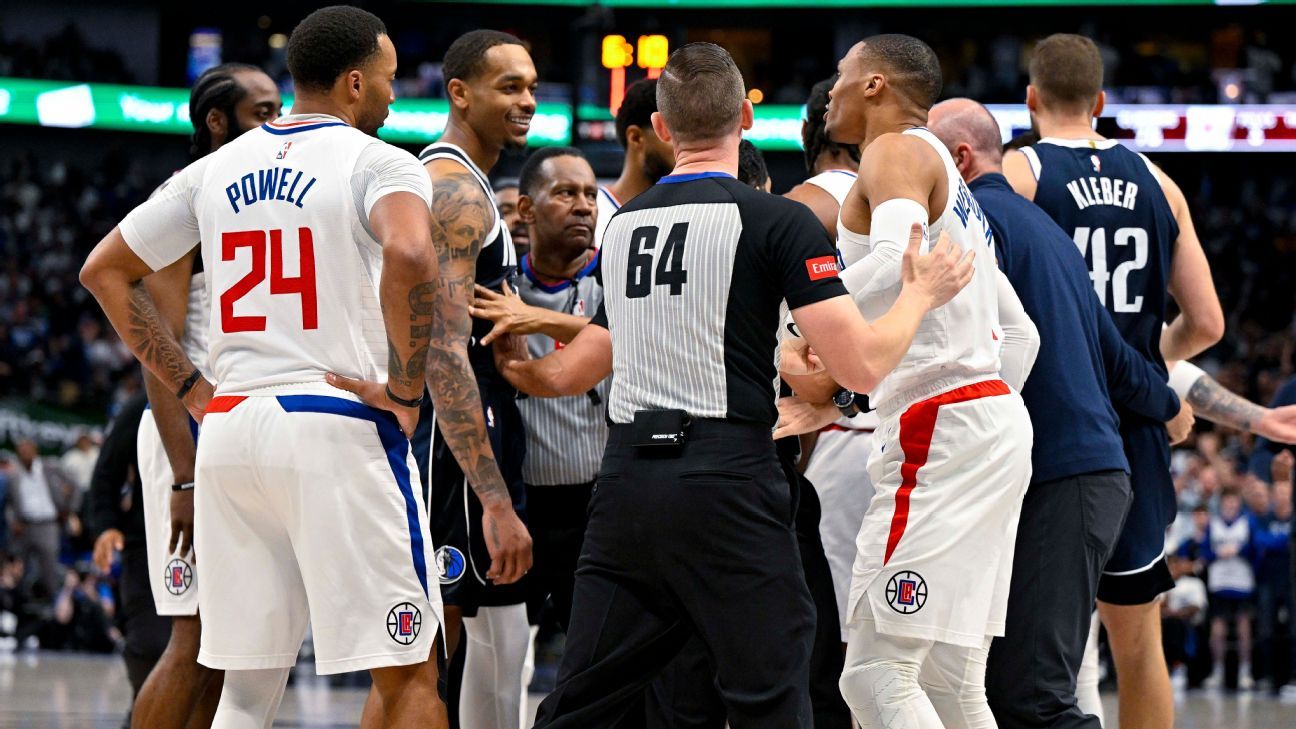OAKLAND, Calif. — This is where a backup became a legend, where an overachiever became a folk hero and the everyman had tens of thousands of diehards chanting his name.
This is where Guardians manager Stephen Vogt blossomed as a catcher, a clubhouse leader, a fan favorite. It’s where he rescued his career before it ever truly launched, where he sprouted into an All-Star and where he and his family scripted an emotional final chapter to a career no one could have envisioned. This is where he coined the phrase, on behalf of fans watching him: “If that guy can do it, I can do it.” This is where he developed into, as he describes, “a regular guy with a cool job.”
It all started for Vogt in Oakland. It ended in Oakland, too, with one last euphoric trip around the bases. And now Vogt’s managerial career, a role he has built toward for 15 years, will begin in Oakland.
“It still doesn’t feel real,” he said.
It’s fitting. It’s perfect. It’s another example of his career coming full circle.
Here are three tales that highlight Vogt’s storybook life in baseball.
The Vogts’ seats in the second deck, halfway between third base and the left-field corner, shielded them from McCovey Cove, so a 15-year-old Stephen didn’t see the bruised baseball cannonball into the chilly water on March 31, 2000.
But when Jorge Posada’s home run disappeared into the bay during that final tuneup before Pac Bell Park’s grand opening, Stephen had a revelation.
It’s an enduring image for Stephen, him in his cream Marvin Benard jersey, polishing off a French dip sandwich and a soda and declaring to his dad, Randy, that he would launch a baseball into that water one day. Of course, Randy has no recollection of his son saying that, even though he remembers everything about that night, the first tour of one of baseball’s most scenic venues.
GO DEEPER
The wild highs and lows that prepared Stephen Vogt to be the Cleveland Guardians’ manager
They were in attendance for J.T. Snow’s game-tying homer in the ninth inning of Game 2 in the 2000 NLDS, and Barry Bonds’ 69th homer in 2001, off Chuck McElroy of the Padres at the end of September as he chased down Mark McGwire’s single-season record.
Randy would study the scoreboard to see when Bonds was scheduled to hit next so if anyone needed a trip to the bathroom or concession stand, they could plan it around his visit to the batter’s box.
Baseball is in the family’s blood. Stephen’s son, Clark, is named after Will Clark, Stephen’s favorite player.
The Vogt brothers spent summer afternoons in their rectangular front yard on their cul-de-sac in Visalia, Calif. A drive off the roof across the street was a homer, but a rope to right field was off-limits and required a stealth mission to retrieve the tennis ball without the grouchy neighbor noticing. Thus, Stephen, a lefty hitter, was forced from kindergarten to learn to direct the ball to the opposite field.
The Giants fandom dates back a quarter-century before Stephen was born. Randy’s dad grew up in Oklahoma and rooted for the New York Giants because he loathed the Dodgers and Yankees. The Giants relocated to San Francisco in 1958, a couple of years after the Vogts moved to central California.
Randy attended his first MLB game at Seals Stadium, the minor-league facility that briefly hosted the Giants until Candlestick Park opened. Willie Mays was Randy’s hero.
Stephen signed with the Giants in 2019. His brother reminded him they had dreamed of that moment since they were kids with Bonds Fever. That spring, Stephen posed for a photo with Mays. The framed picture sits on Randy’s desk.
Later that season, 7,070 days after his alleged promise to his dad, Stephen hit a splash shot into the bay.
Anytime Vogt called his wife from the ballpark, she assumed the worst: another injury, another surgery, another painful road toward the unknown. That’s what she figured when his name popped up on her phone the day before the 2012 season opener.
Instead, Vogt had learned he was headed to the big leagues. He was ready to start the season with Triple-A Durham. All was quiet at the ballpark. Durham manager Charlie Montoyo went for a jog. The team’s hitting coach, Dave Myers, surprised Vogt with the news of his promotion.
The Rays needed a last-minute injury replacement for B.J. Upton and Vogt, a catcher by trade, also moonlighted as a corner outfielder. He rushed home, Alyssa packed his suitcase and they headed to the Raleigh-Durham airport with their six-month-old daughter.
On the drive there, they laughed. They had just spent every cent they had at Costco on the essentials needed for surviving another minor-league season. That eventually became their gimmick: Anytime they filled their shopping cart at Costco, it seemed, they wound up not needing any of the purchases because they were headed elsewhere, either via call-up or trade. On a few occasions, they trekked to Costco looking to spark some good fortune.
Vogt remembers sitting in the passenger seat of their white Chevy Tahoe, feeling like it was stuck in neutral on Route 885 as his legs shook, his heart conducted a furious drum solo and his fingers failed to keep pace with his frantic mind as he delivered one text after another to share the news with friends and family.
Those 60 minutes from ballpark office to airport seat felt more like four hours, time standing still as he itched to get to Tampa to put on a big-league uniform for the first time.
As Alyssa pulled to the curb of the departures level ahead of his 6:30 p.m. flight, Stephen told Payton, six months old at the time, that she had no idea what that day meant, but her life would be changed forever. The same decree applied to himself. He apologizes to Payton as he tears up while retelling the story 12 years later. She smiles.
Vogt debuted in the eighth inning against the Yankees on Opening Day, pinch-hitting for Elliot Johnson with runners on the corners and no outs and Tampa trailing by one. He always told himself he had to swing at the first pitch, location and velocity be damned. You can’t record a hit or a home run on the first pitch you ever see if your bat doesn’t escape your shoulder, he contends. He fouled back a David Robertson fastball. Three pitches later, he returned to the dugout, unsuccessful yet thrilled.

Vogt’s first at-bat in the major leagues came against the Yankees on April 6, 2012. (J. Meric / Getty Images)
“Punched out. It was awesome,” he says, before noting the Rays did walk off Hall of Fame closer Mariano Rivera that afternoon. “I got to high-five the guy who scored.”
Two familiar voices guided Vogt from the on-deck circle to the batter’s box for the first at-bat of his final game.
Now batting, our dad, No. 21, Stephen Vogt!
Payton and Clark, the two oldest Vogt children, introduced their dad on the ballpark PA system as their younger brother, Bennett, mouthed the words in the booth. Vogt, fighting back tears, took a deep breath. He then dug in against Shohei Ohtani.
“It just meant everything,” he says.
And it almost didn’t happen.
Vogt considered calling it a career after the 2021 season, which culminated in a Braves championship, even though he was sidelined by an injury. His last two at-bats that year? Home runs.
He was 2-for-2 on Sept. 9, with a couple solo shots off Erick Fedde. In the sixth inning, Vogt blocked a ball in the dirt, changed directions and attempted an off-balance throw to third to nab Juan Soto. During his throwing motion, he felt a pop in his hip. He couldn’t squat. Two muscles had ripped away from his pelvis. He had a sports hernia. He exited the game. He required season-ending surgery.
The league initiated a lockout that winter, which bought him time on his retirement decision. He rehabbed as if he were going to keep playing; that way, even if he ultimately retired, he’d return to full strength before he replaced catching and swinging a bat with coaching or swinging a golf club. Since the lockout forced a transaction freeze, Vogt didn’t have to watch free agents find new homes as he anxiously awaited a call.
The lockout ended in March, the Oakland Athletics called and Vogt couldn’t resist the homecoming, the chance to script a storybook ending sweeter than the one that ended with a couple of homers, a couple of torn muscles and a title. He could finish his career where he earned his big-league break. That July, following a conversation with his wife on an off-day date night in Chicago, Vogt decided that the 2022 season would be his last.
In the seventh inning of his final game, knowing it was likely the last at-bat of his career, Vogt socked a first-pitch fastball over the right-field fence. The baseball landed in a stairwell, one section from Payton and a handful of other family members. He high-stepped around the bases before reaching home plate and hugging Ernie Clement, the on-deck hitter. A few moments later, Vogt took a curtain call.
His first major-league hit was a homer to right field in Oakland. His last major-league hit was a homer to right field in Oakland. It was the perfect final entry, a crazy cap to a wild playing career, one he couldn’t have imagined while toiling away in the minors or while marveling at Barry Bonds and Will Clark as a kid in the stands across the San Francisco Bay.
(Top photo: Lindsey Wasson / AP Photo)

Sarah Wilson is your guide to the latest trends, viral sensations, and internet phenomena. With a finger on the pulse of digital culture, she explores what’s trending across social media and pop culture, keeping readers in the know about the latest online sensations.








